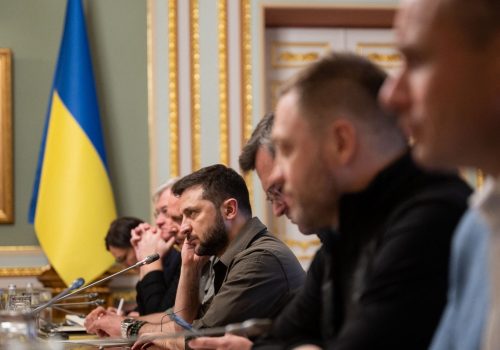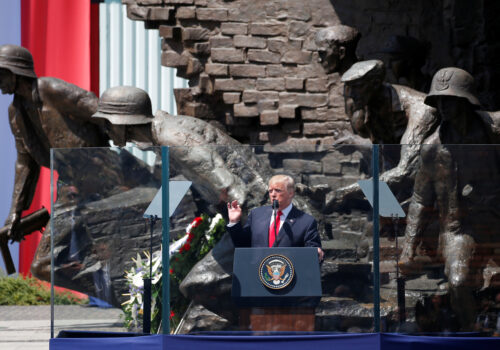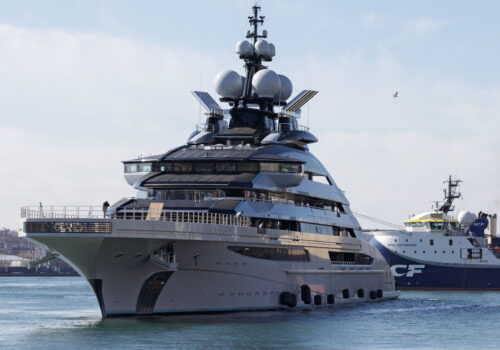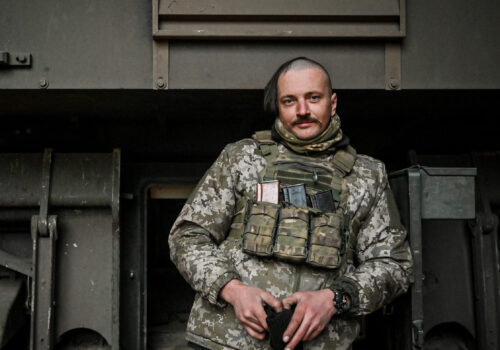Event Recap
Nearly three months since Moscow’s full-scale invasion began, Ukraine continues to defiantly defend its territory. The West has supported Ukraine in this fight by providing military assistance and by lodging unprecedented sanctions on Russia. Sanctions, including restrictions on the Russian Central Bank and technology exports to Russia, have eaten into the Kremlin’s capacity to wage war. But sanctions can be made more effective. With more room to escalate punishment on Putin’s war chest and the Kremlin elites helping to sustain Putin’s system, what does Ukraine see as the best targets for the West to maintain economic pressure? How can the US and Europe better coordinate their sanctions regimes to make a difference in the war?
Head of the Office of the President of Ukraine Andriy Yermak joined Ambassador John Herbst, senior director of the Atlantic Council’s Eurasia Center, to present a roadmap for the West on how to strengthen sanctions on Russia and weaken its ability to wage its war of aggression against Ukraine.
An #ACFrontPage event
Atlantic Council Front Page is our premier live ideas platform for global leaders to discuss the defining challenges of our time. #ACFrontPage is a virtual event series featuring top newsmakers across multiple digital platforms. Harnessing the convening power and expertise of the Council’s fifteen Programs and Centers, #ACFrontPage leverages the Council’s capabilities in social media, press, and digital outreach to spotlight the world’s most prominent leaders and the most compelling ideas across sectors and engage new audiences eager for nonpartisan and constructive solutions to current global challenges. This widely promoted program features the Council’s most important guests and content serving as the highlight of our programming each week.
Featuring
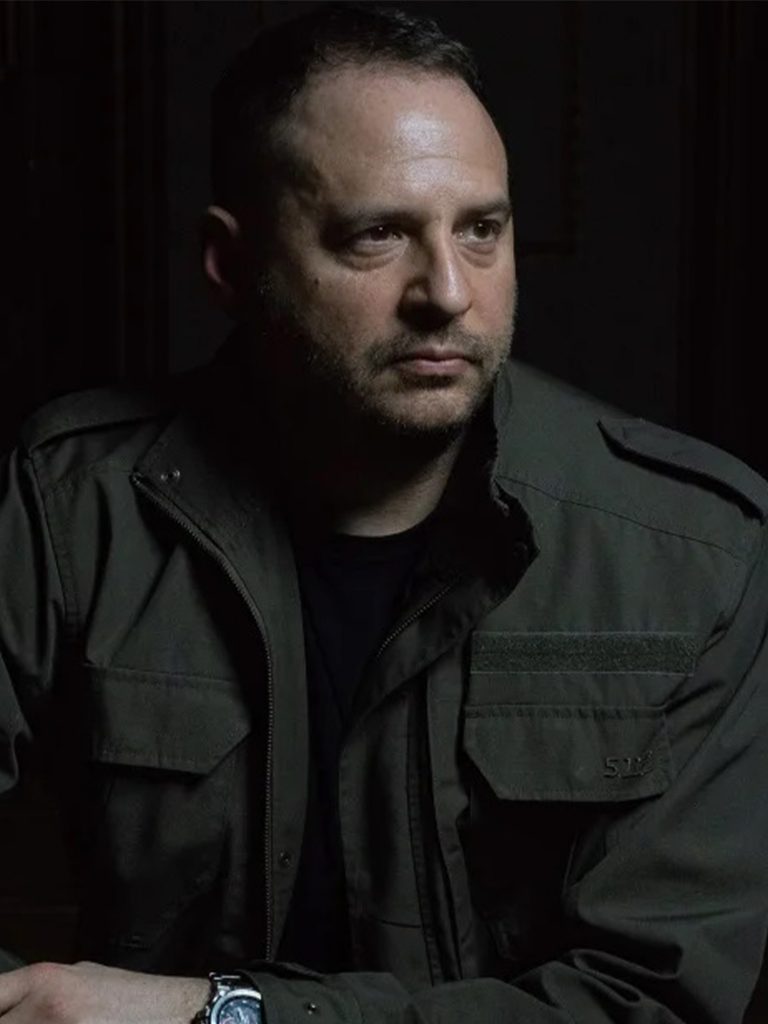
Andriy Yermak
Head
Office of the President of Ukraine
In conversation with
Follow us on social media
and support our work
issue spotlight

Europe in crisis
War in Ukraine
Experts from across the Atlantic Council are assessing the consequences of Russia’s February 2022 invasion, including what it means for Ukraine’s sovereignty, Europe’s security, and the United States’ leadership.
related events

The Eurasia Center’s mission is to enhance transatlantic cooperation in promoting stability, democratic values and prosperity in Eurasia, from Eastern Europe and Turkey in the West to the Caucasus, Russia and Central Asia in the East.
